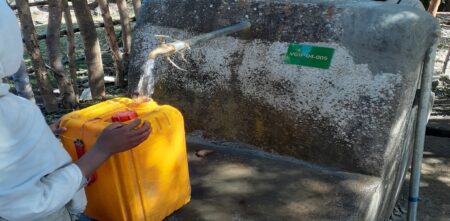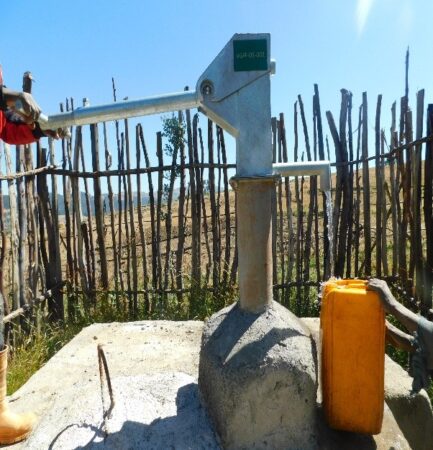Delivering Ecological Responsibility In East Africa
As part of our continuing partnership with VITA, a commitment was made over two years to further enhance access to clean water by local communities. Here we share the report on what was accomplished during the first year:
It is challenging to envision a hygienic environment devoid of water. However, in rural Ethiopia, numerous communities face a scarcity of this essential resource. Accessing a water source in the Amhara region often entails several hours of laborious trekking on foot. Regrettably, water sources in these areas are frequently shared with livestock, leading to unsafe and contaminated water. The purification process necessitates a substantial amount of firewood for boiling.
The arduous task of fetching water primarily falls upon women and girls. Among them is Almaz Abebe (not her real name), a 31-year-old mother of four. Almaz used to rely on the “Lol Minch,” an unsanitary and exposed water spring, as her source of water.
For the past three years Vita, in partnership with the Congregation of the Sisters of Mercy , has been dedicated to fixing broken water points and securing spare parts in Ethiopia. Together, they have implemented significant and impactful programs that have positively impacted thousands of women and their families.
The provision of clean and safe water to communities has resulted in a reduced demand for firewood required for prolonged boiling to purify water. This conservation effort has been instrumental in preserving trees and safeguarding other forms of life that depend on forests for their survival.
This practical approach aligns with the Mercy values of ecological responsibility and Laudato Si’, which aim to protect the Earth, alleviate poverty, and alleviate hardships faced by women and their families.
The provision of clean water is creating sustainable livelihoods for women and enhancing the overall quality of life for families in East Africa. Women and girls no longer have to undertake arduous journeys to fetch water and firewood. As a result, girls’ school attendance has improved, and women now have more time to engage in social, livelihood, and religious activities such as spending time with friends, poultry keeping, and attending church meetings.
All of this has been made possible by the Congregation of the Sisters of Mercy. Their generous support empowers us to protect our shared home – earth – while uplifting communities, especially women, from the grips of poverty.
If you have any questions/comments about this endeavour, please contact Maria Douglas, M&D Co-Ordinator.




